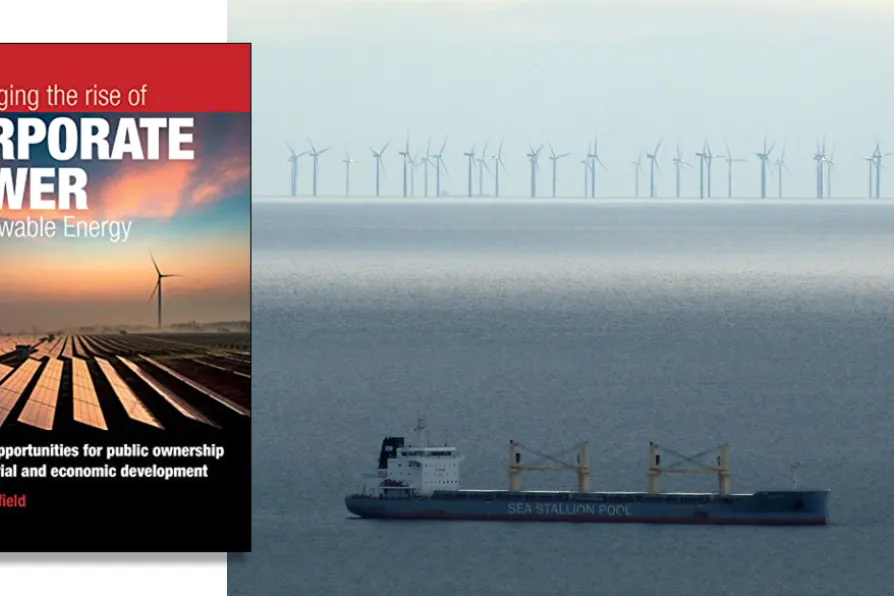GAVIN O’TOOLE examines the fatal relationship between environmental crimes and politics in Brazil and the inspiration provided by Indigenous people

 The Gwynt y Môr offshore wind farm, Anglesey
[Andrew/CC]
The Gwynt y Môr offshore wind farm, Anglesey
[Andrew/CC] Challenging the rise of corporate power in renewable energy
Dexter Whitfield, Spokesman, £20
DEXTER WHITFIELD has performed an invaluable service over the years in researching the mechanism of corporate control over public services and its extremely profitable but socially disastrous effects. He has written widely on creating “a public alternative to the privatisation of life.”
Here he turns his attention to the provision of renewable energy.
Painstaking research into annual reports, company press releases and corporate bulletins shows that globally the private sector provides 86 per cent of the capital investment required: public-sector involvement is insignificant except for facilitating this private investment through public/private partnerships.

When privatisation is already so deeply embedded in the NHS, we can’t just blindly argue for ‘more funding’ to solve its problems, explain ESTHER GILES, NICO CSERGO, BRIAN GIBBONS and RATHI GUHADASAN













